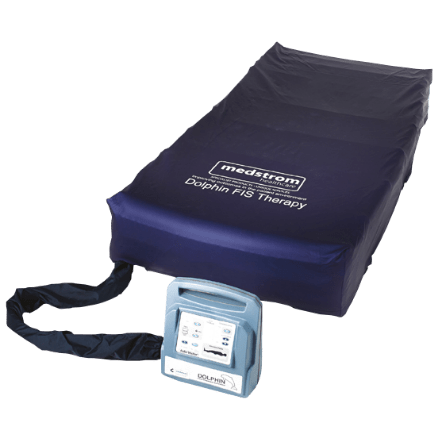Mental Health Support | In Conversation with Our First Aiders
Just as we care for the patients using our products, we equally care for each other within the business, providing mental health support via our exceptional Mental Health First Aiders (MHFAs). Aligned with mental health awareness week, the focus for 2025 is on community – a reminder to check in with yourself and those around you. From left to right below, hear from Tim, Phil and Matt about why the role of the MHFAs is so important.
Q1: What does it mean to be a Mental Health First Aider?
Phil: I think that this initiative is really important. You see people opening up, some that you wouldn’t expect to, and you develop a bond and relationship because of that. You have that link with people and they know that they can trust you or go to you again and again. I know when that phones rings, I get to be there for that person. Whether it lasts 10 minutes or 20 minutes, I know that they’re ok. It’s one of the best things we’ve done as an organisation.
Matt: In our busy work environment, we may joke with each other, tease each other, sometimes get frustrated with each other, but fundamentally, we also help each other, support each other and recognise that everyone is human.
It’s about being available, non-judgemental and listening as opposed to trying to give advice, bringing your own personal challenges into the conversation or telling someone not to worry. People’s experiences are their own and our job is to make sure someone feels heard and support them to find the right route for help.
Q2: What quality sets you apart as a Mental Health First Aider?
Tim: I would like to think that the people I work with know that they can approach me at any time and know that I would do my upmost to help them in any way I could. First and foremost, you must be a really good listener, as well as being open and honest. Not only with the person you are trying to help, but also with yourself.
Matt: I may be all manner of things to all manner of people but when the chips are down, I am there to listen and support. Life happens and when someone feels ready to open up and they choose me, everything stops in order to give them the focus and listening ears they need in that moment.
Phil: Lots of life experiences within the mental health space and dealing with those scenarios personally means I can support people well when they’re struggling. I’ve been in those challenging times and situations so can really relate. It is key to remember that we have the power to listen and that’s the most important thing.
Q3: What’s your one piece of advice to help de-stress, relax or use as a support mechanism?
Matt: Take time. That may mean five minutes out of your day to play a fun game on your phone, taking some quiet time in your car before a meeting or setting aside some fixed time for lunch where you put your work phone on silent. Different things work for different people, you need to find what works for you.
Phil: Find something that you enjoy. It could be going for a walk or joining a club or a group that meets up once a week. I run a fishing club and there are lot of older people there who don’t have anyone and they find that group and space so beneficial. It could be anything, there is so much stuff that you can go and do.
Tim: The one piece of advice I would give is to first admit that there is a problem. It is completely okay to struggle. However, it is important that we can speak freely and comfortably with someone about our own struggles in order to prevent us bottling everything up.
To help me de-stress, I spend as much time playing with my grandson Jaxon as possible. I love nothing more than rolling around on the floor pretending to be dinosaurs.
If you are struggling with any mental health issues then please reach out to Medstrom’s Mental Health First Aiders, who are open and available to offer further support. Alternatively, visit: How to seek help for a mental health problem – Mind









